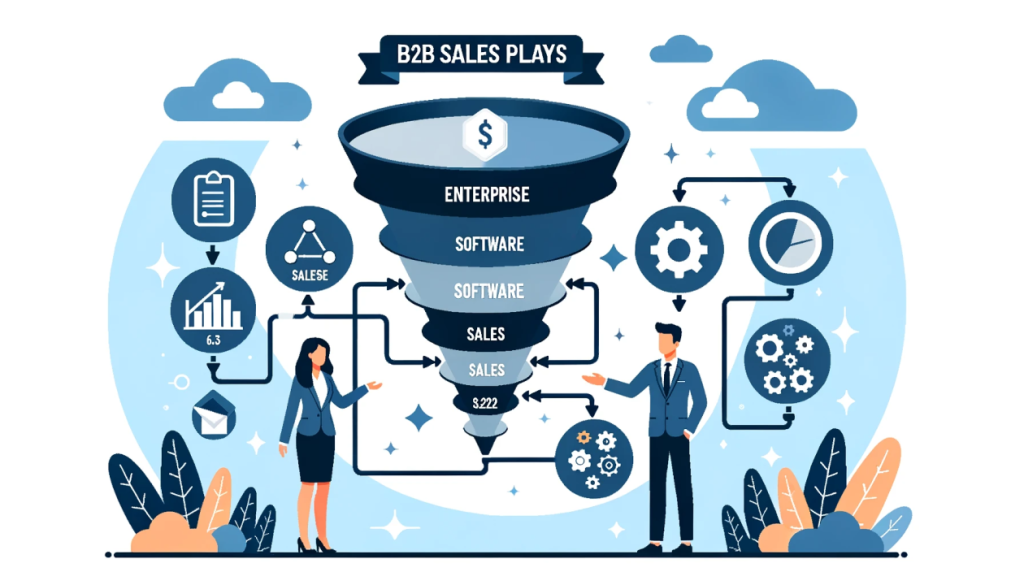How to Achieve Sustainable B2B Revenue Growth in the European Telco Market
Navigating the European telecommunications market is like solving a complex puzzle, filled with both opportunities and challenges. For businesses aiming to penetrate this sector, understanding the intricacies of selling to European telco companies is crucial. In this article, we reveal the strategies that have helped companies achieve sustainable B2B revenue growth, providing you with a roadmap to navigate this complex landscape successfully.
In an era where 5G and IoT are revolutionizing connectivity, and cybersecurity is more critical than ever, businesses must adapt to thrive. This guide delves into key industry trends, regulatory landscapes, and strategic sales approaches, providing actionable insights for companies aiming to establish a strong foothold in the European telco market. By leveraging these strategies, businesses can achieve sustainable growth and long-term success.
Key Trends Shaping the European Telco Market
The rollout of 5G networks is driving significant investments and creating new opportunities in IoT, augmented reality, and autonomous vehicles. Europe has deep 5G penetration and follows only China, South Korea, and the U.S. in adoption levels. Its successor, 6G, while still in its early stages, is expected to revolutionize connectivity and unlock even more innovative applications.
With the increase of e-wallets and online payment systems, the need for telecom cybersecurity has surged. Companies offering advanced threat detection, prevention, and response capabilities to help telcos protect their networks, mitigate revenue loss, and ensure the integrity of their services will find great opportunities in the European market.
IoT is a rapidly growing market, with telcos playing a crucial role in providing connectivity and infrastructure. Businesses offering IoT solutions, platforms, or services have significant potential in the European telco market. The adoption of sensors, connected devices, and automation in manufacturing and other industries is creating demand for advanced communication and data management solutions. Telco companies are well-positioned to capitalize on this trend.
Telco companies are undergoing significant digital transformation initiatives, focusing on areas such as cloud computing, network virtualization, and data analytics. Businesses that can offer solutions to support these transformations can gain a competitive advantage. Additionally, environmental, social, and governance (ESG) factors are becoming increasingly important for telco companies. Demonstrating a commitment to sustainability and ethical practices can enhance your reputation and appeal to telco customers.
Building Strong Relationships with Key Players
While there is some overlap, most telco Tier 1 providers are found within country boundaries. Some of the biggest European telco providers include:
- Spain: Telefónica (Movistar), Orange, Vodafone, Yoigo
- France: Orange
- UK: BT, Vodafone, Colt, Virgin Media, SSE, O2, EE, Three
- Germany: Deutsche Telekom, O2, Vodafone
Building relationships within these companies is crucial for success. Selling to telco companies often requires a highly targeted, account-based marketing approach. These organizations have complex decision-making processes involving multiple stakeholders, making it essential to build strong relationships and tailor your sales strategies to specific accounts.
Strategic Sales Approaches
Adopting an account-based marketing approach is essential when selling to telco companies. Tailor your messaging to specific accounts, build strong relationships with key decision-makers, and overcome common challenges in the telco industry.
When entering the European telco market, it’s often advisable to start with smaller, Tier 2 and 3 operators. These companies may be more receptive to new solutions and can serve as references for larger, Tier 1 players. Proving your value in these smaller organizations can open doors to the more established telco giants.
Collaborative initiatives, such as the Go Ignite alliance formed by Singtel, Orange, Deutsche Telekom, and Telefónica, highlight the value of partnerships in addressing market challenges. By pooling resources, expertise, and networks, these alliances offer startups access to new markets, mentorship, investment opportunities, and a platform to showcase their innovations.
Our Insights
One of the most unique challenges nGülam faced was helping a SaaS company enter the highly competitive German market. The client was struggling with understanding local regulations and consumer behavior. Our team conducted thorough market research and developed a tailored go-to-market strategy that addressed these specific challenges. We also leveraged our extensive network to connect the client with key local partners. This comprehensive approach not only facilitated a smooth market entry but also resulted in a 20% increase in their market share within the first year.
A common misconception is that a successful domestic strategy will automatically translate to success in a new market. Many companies underestimate the importance of localizing their approach. At nGülam, we emphasize the need for a deep understanding of local market dynamics, including cultural nuances and regulatory requirements. We work closely with our clients to adapt their strategies, ensuring they resonate with the local audience and comply with local laws. This tailored approach significantly increases the likelihood of success in new markets.
Digital transformation and AI have revolutionized the way businesses operate. For our clients, this means leveraging data analytics to gain deeper insights into customer behavior and market trends. AI-powered tools enable more efficient and effective sales processes, from lead generation to customer relationship management. We help our clients integrate these technologies into their strategies, ensuring they stay ahead of the competition. For instance, one of our clients saw a 30% increase in lead conversion rates after implementing an AI-driven sales platform.
Earlier this year, we worked with a media company that was struggling with declining from their telco channels. Our team conducted a comprehensive audit of their sales processes and identified several inefficiencies. We then implemented a new sales strategy that included targeted lead generation, streamlined sales workflows, and enhanced training for the sales team. As a result, the company experienced a 25% increase in revenue within six months. This transformation not only boosted their bottom line but also improved overall team morale and productivity.
Building strong relationships in the European telco market requires a strategic and personalized approach. First, it’s essential to understand the key players and their specific needs. This involves thorough market research and networking. Second, companies should focus on providing value through innovative solutions that address the unique challenges faced by telco providers. Finally, maintaining consistent and transparent communication is crucial. At nGülam, we help our clients navigate these complexities by leveraging our deep industry knowledge and extensive network, ensuring they build lasting and fruitful relationships with key stakeholders.
Successfully navigating the European telco market demands a strategic approach that integrates understanding key trends, navigating complex regulatory landscapes, embracing digital transformation, building robust relationships, and employing targeted sales strategies. By focusing on these critical areas, your business can achieve sustainable B2B revenue growth and establish a strong foothold in this competitive market.
Are you ready to take the next step? Reach out to us at nGülam for a personalized consultation and let’s chart your path to success together.



